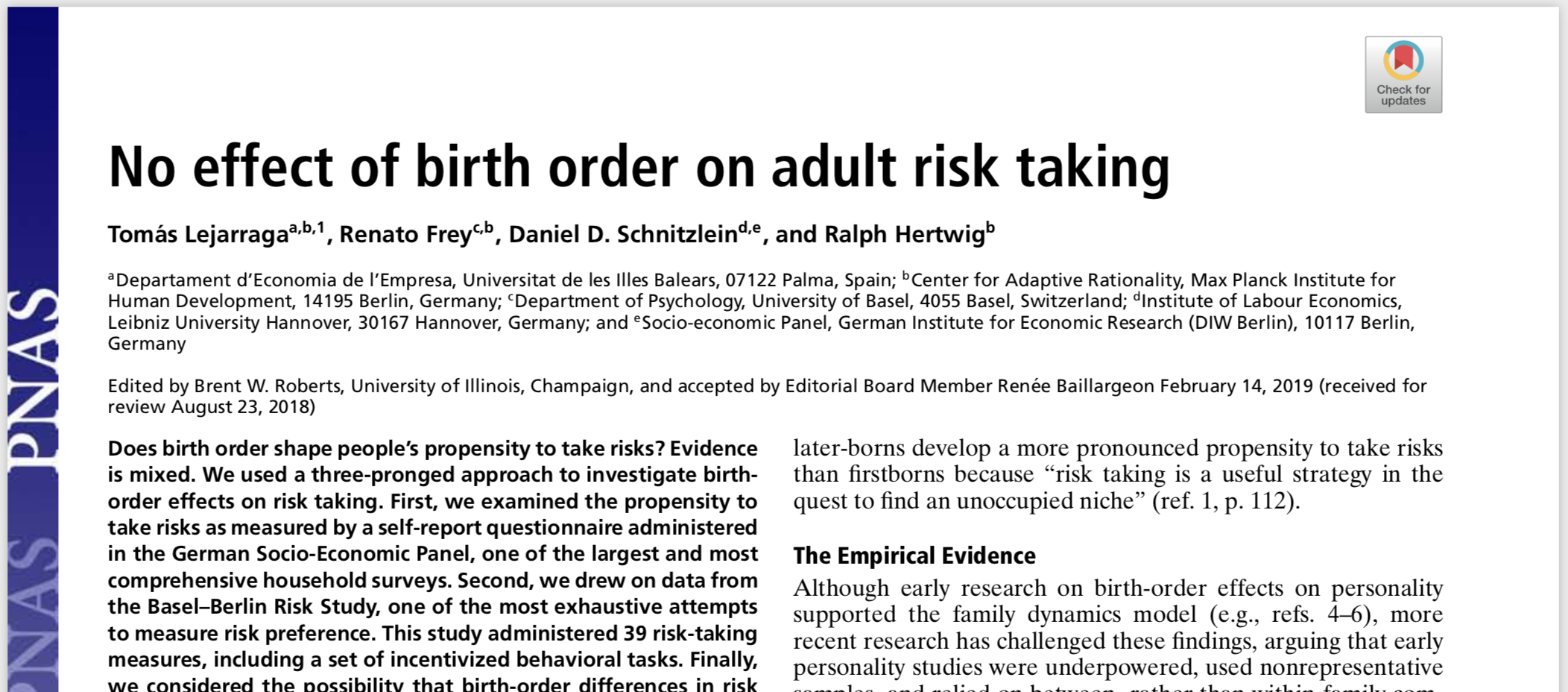Research in personality psychology has explored many potential sources for the emergence of individual differences. One of them is birth order: According to Sulloway’s childhood niche hypothesis, later-borns develop a more pronounced propensity to take risks than firstborns, because “risk taking is a useful strategy in the quest to find an unoccupied niche”. That is, in their competition for parents’ limited resources, risk taking might be instrumental for later-borns to attract attention. But do such early experiences shape personality lastingly, potentially leading to stable adult differences in risk taking?
We analyzed three datasets to address this question. First, we employed an exhaustive modeling approach (i.e., specification curve analysis) to analyze a large panel dataset with self-report data. Second, we analyzed a large set of self-report and behavioral measures from the Basel-Berlin Risk Study. Third, we analyzed historical data on explorers and revolutionaries. The analyses of our three-pronged approach speak with one voice and suggest a clear conclusion: There exists no effect of birther order on adult risk taking. For the full details, please see here.
First appeared on http://renatofrey.net/blog
Lejarraga, T., Frey, R., Schnitzlein, D. D., & Hertwig, R. (2019). No effect of birth order on adult risk taking. Proceedings of the National Academy of Sciences, 201814153. https://doi.org/10.1073/pnas.1814153116

Be the first to leave a comment. Don’t be shy.